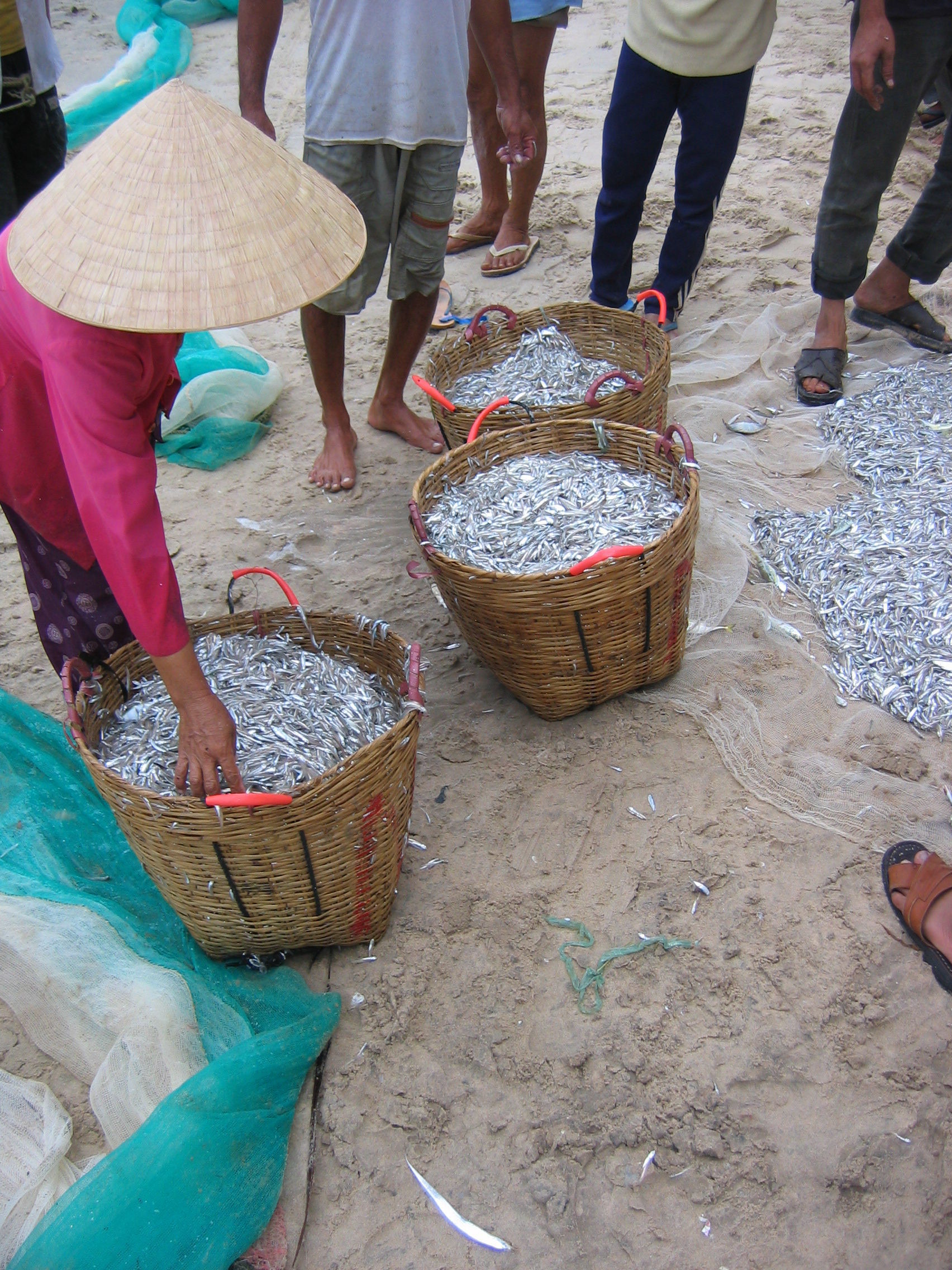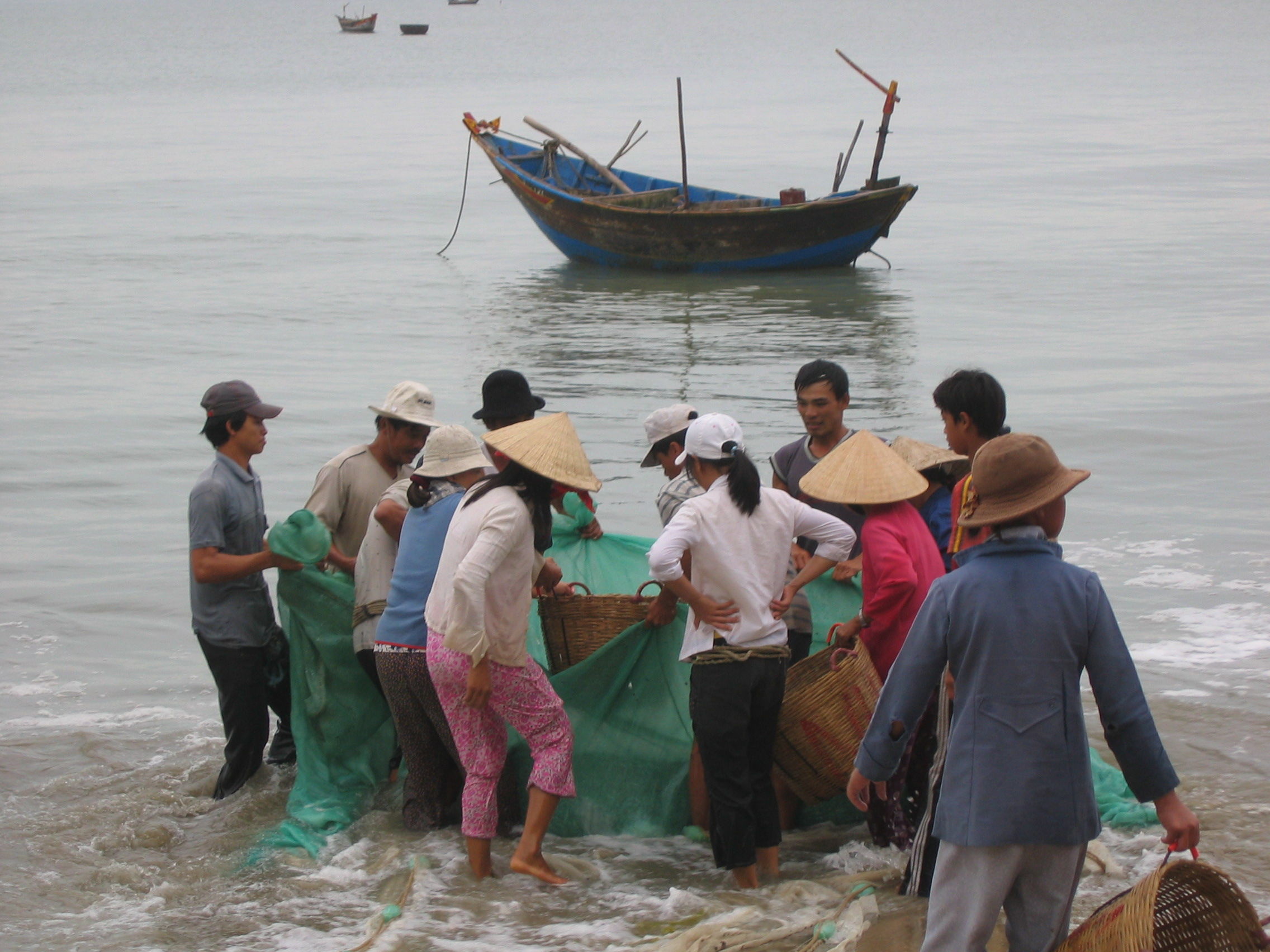Tiptoeing quietly out of the thatched dwelling, I slowly navigated the winding dirt path in the dim light. Past the tropical fronds and under the curving trunks of the palms I walked. Noises of the Vietnamese jungle surrounded me; cawing tropical birds, wild hogs scampering through the underbrush. Finally, the going became easier as the vegetation thinned with my increasing proximity to the shore.
The dirt path ended abruptly, and in front of it lay miles of white sand that stretched as far as the eye could see, unperturbed but for small inlets and protruding foliage. Past the sand lay the Pacific Ocean, just becoming visible beneath the receding mist. This was a primitive landscape, one that had remained unchanged for thousands of years.
Dotting this archaic landscape were fishermen from the village Mui Ne; grandmothers, parents, and children working side by side. Missing were the elderly men, an ever-present reminder of the consequences of the war. Hovering around their circle was a handful of gaunt stray dogs, plump wild pigs, and a lone emaciated cow.
In the sea, the men bobbed in over-sized coconut shells, overlooking the operation and commanding the women in an indecipherable tongue. Feet dug into the absorbent sand, backs braced for the physically exhausting task, and lean muscles flexing, the women pulled the net out of the sea. The first few feet of net surfaced empty, but the once peaceful operation became manic in seconds.
The net suddenly filled with panicked fish, desperate to escape from death’s grasp. When the net had been hauled ashore in its entirety, the men paddled to the shore to join the women. The sardine-like fish danced through midair in hopes of escape, their scales catching the few beams of sunlight that had pierced the early morning mist. The fisher people appeared to be sorting through mounds of pure silver.
The people seemed bored with their routine ritual, casually tossing aside the useless fish for the animals to fight over. A lifetime of first-hand experience and generations of knowledge before them had made this task second-nature. So mesmerized was I by the picture before me that I failed to notice the rapidity in which these people completed their task. In a matter of minutes, several baskets were full of now lifeless fish. The net was empty but for a piece of garbage, the only evidence that this scene was one of the present.
Although I hovered just a few feet outside their circle, they didn’t acknowledge me. Theirs was not a rude attitude; instead it seemed as if they were completely unaware of my presence.
I’d witnessed an ancient custom so far removed from my life it seemed surreal. The scene must have been transported through time, because these people didn’t seem to belong in the twenty-first century, what with their triangular reed hats, exposed feet, and humble dress.
Excited by my discovery, I hurried back to our thatched cabana to wake my family. Wiping sleep out of their eyes and adjusting their rumpled pajamas, we scampered along the dirt path back to the beach.
But where minutes before there’d been a hectic scene, there now lay an empty beach. The fisher people had disappeared. Even the animals had vanished. What had been a landscape filled with an incomprehensible chattering was now silent. All that remained was one mangled fish, its lifeless body a reminder of the hardships of this removed life, and the imprinted footsteps of an ancient people.
Dear Reader: This page may contain affiliate links which may earn a commission if you click through and make a purchase. Our independent journalism is not influenced by any advertiser or commercial initiative unless it is clearly marked as sponsored content. As travel products change, please be sure to reconfirm all details and stay up to date with current events to ensure a safe and successful trip.

